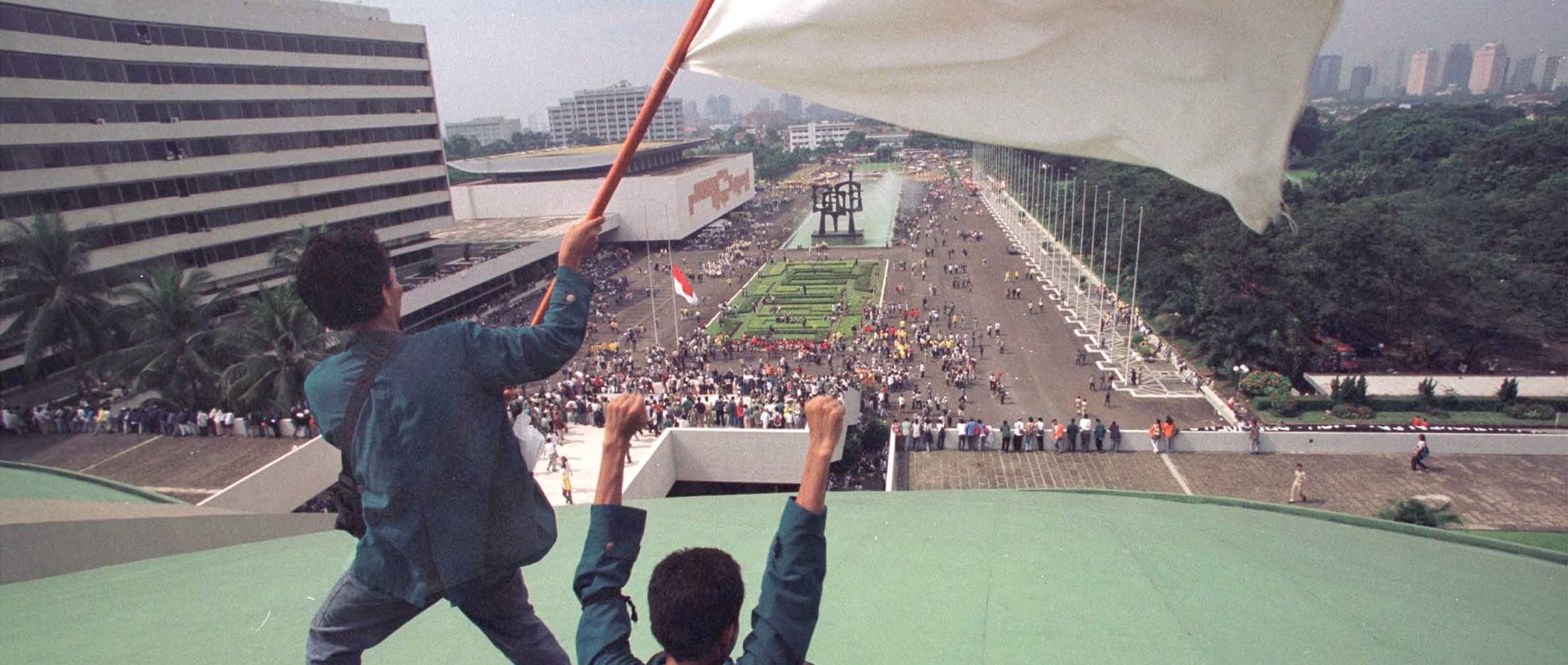Responding to the charges brought against pro-democracy activist and human rights defender Robertus Robet, who was detained in the night of 7 March for criticising the Indonesian Military (TNI), Amnesty International Indonesia’s Executive Director Usman Hamid said:
“This is a blatant and ludicrous attempt to intimidate and silence Robertus for his peaceful criticism of the military. He is an academic who is guilty of nothing more than voicing his views over proposals to place senior military officers in positions of power within the government.
He is an academic who is guilty of nothing more than voicing his views over proposals to place senior military officers in positions of power within the government.
“The police must drop their baseless charges against Robertus and guarantee his and his family members’ safety from recrimination.”
Background
Indonesia’s National Police’s Cybercrime unit arrested Robertus Robet just after midnight today local Jakarta time. He was released in the mid-afternoon. The arrest came after a video of a speech he made at a protest in front of the Presidential Palace on Thursday 28 February 2019 was posted on various social media platforms.
In the speech he compared the plan to place military officials in other government institutions to the ‘New Order era’ (1966 – 1998) when Indonesia was under a military-backed government, and sang a song critical of the military from that period. Robertus was one of the pro-democracy activists who, alongside students, fought to topple then-president Soeharto in 1998. He has actively campaigned for military reform since then. He is also a co-founder of Amnesty International Indonesia.
Robertus has been charged with online criminal defamation under Article 28(2) of the repressive Law on Electronic Information and Transaction Law (ITE) and Article 207 of Indonesia’s Criminal Code (KUHP) for insulting an authority or a public institution. If found guilty he could face six years in prison.
The Electronic Information and Transaction Law (ITE), which governs information on the internet, contains vague language which has been misused by the government to criminalize freedom of expression, thought, conscience and religion in Indonesia. Article 207 of the Criminal Code criminalizes any expression which is considered insulting an authority or a public institution in Indonesia.


